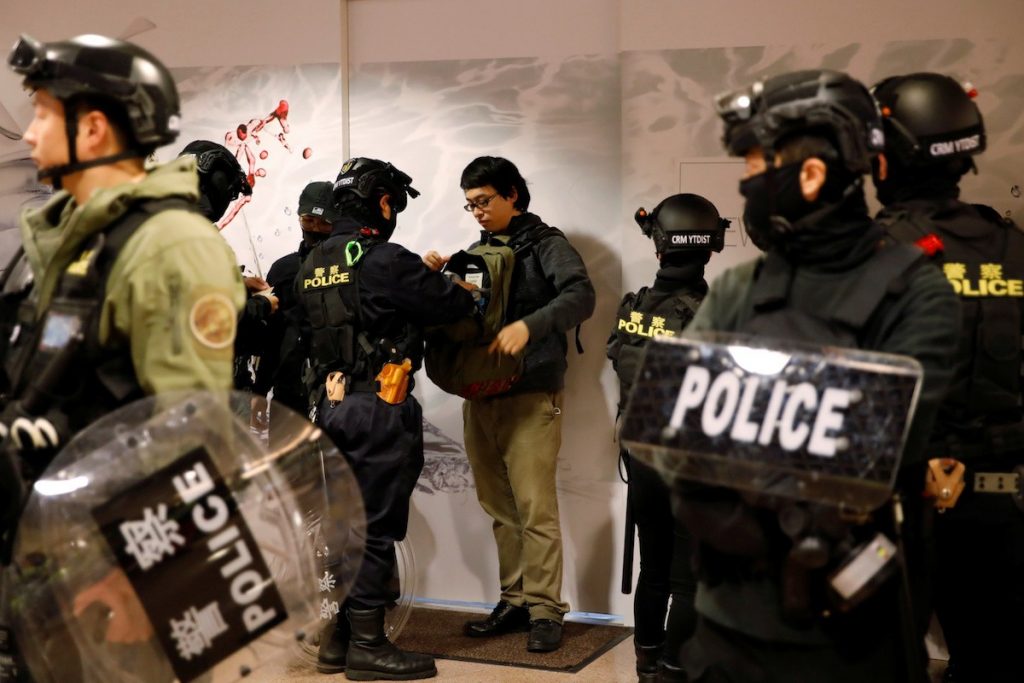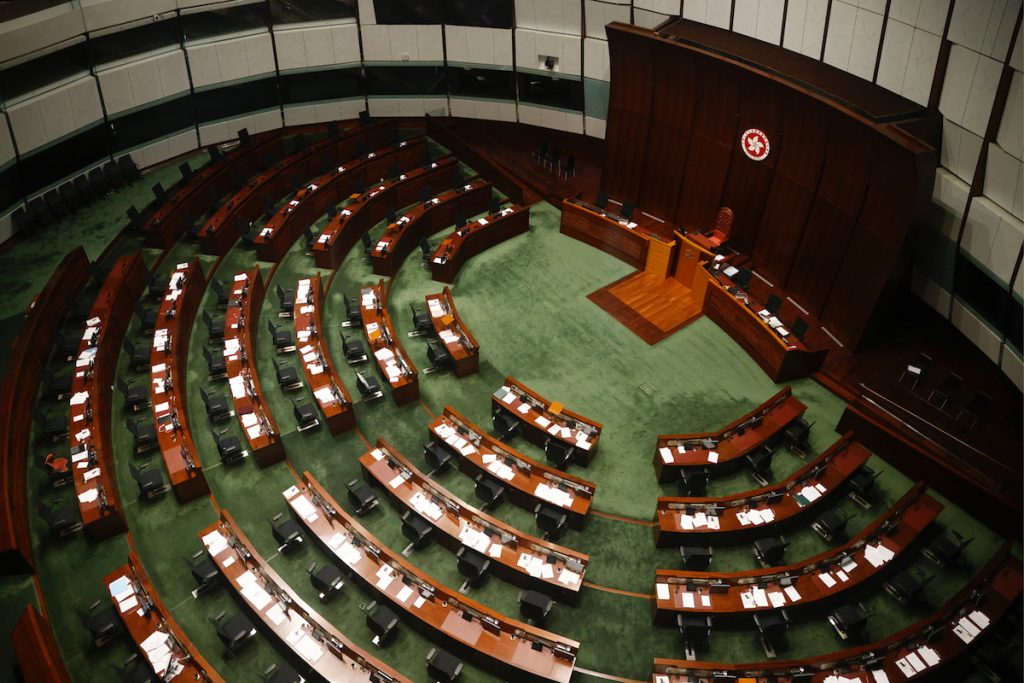
Hong Kong’s High Court ruled on Nov. 19 that the city government had failed to provide an independent mechanism to handle police complaints, breaching the Asian financial hub’s Bill of Rights on torture and cruel treatment.
Hong Kong’s Journalist Association had launched a judicial review in 2019 following widespread pro-democracy protests, arguing that the government had an obligation to set up a mechanism capable of “effective investigation” into suspected ill treatment by the police.
An independent enquiry into police handling of the protests in the semi-autonomous, Chinese-ruled city became a main demand of the protesters last year, along with universal suffrage.
The former British colony’s Beijing-backed leader, Carrie Lam, has said the existing mechanism was sufficient to deal with complaints and there was no need to set up an independent system.
The court disagreed and stated that the government was under a “duty pursuant” to Article 3 of the Hong Kong Bill of Rights, to establish and maintain an independent mechanism.
“The existing complaints mechanism involving the complaints against the police office, with oversight by the Independent Police Complaints Council, is inadequate to discharge this obligation,” the court said in its judgement.
Hong Kong’s Bill of Rights was introduced in 1991 as the then British-ruled city was preparing for its 1997 handover to China under a “one country, two systems” formula aimed at guaranteeing it a high degree of autonomy.
The court ruling comes amid fears in the city over the erosion of its judicial independence by Beijing.
A senior Chinese official said on Nov. 17 that authorities were working on reforms related to Hong Kong’s mini-constitution, including its judicial system.
The independence of Hong Kong’s judiciary is seen as crucial to its role as an international financial hub and an interface between mainland China’s closed capital system and the rest of the world.
The court also ruled that police officers not prominently displaying their identification numbers also violated the Bill of Rights.

Campaign to silence critics
Meanwhile, a day before the court ruling, the Five Eyes intelligence-sharing group said that China’s imposition of new rules to disqualify elected legislators in Hong Kong appeared to be part of a campaign to silence critics and called on Beijing to reverse course.
“We urge the Chinese central authorities to re-consider their actions against Hong Kong’s elected legislature and immediately reinstate the Legislative Council members,” foreign ministers from Australia, Britain, Canada, New Zealand and the United States said in a statement on Nov. 18.
It brought an angry response from Beijing.
If the Five Eyes alliance dared harm China’s sovereignty, security or development interests, they should be careful not to “get their eyes poked out”, foreign ministry spokesman Zhao Lijian told a daily news conference in Beijing on Nov. 19.
China’s Ministry of Foreign Affairs in Hong Kong said earlier any attempt by foreign states to threaten or pressure Beijing to make concessions was “doomed to fail”.
Hong Kong expelled four opposition members from its legislature last week after Beijing gave city authorities new powers to curb dissent. The move triggered mass resignations by Hong Kong’s pro-democracy opposition lawmakers.
It also raised further alarm in the West about the level of Hong Kong’s autonomy, promised under a “one country, two systems” formula when Britain ended its colonial rule and handed Hong Kong back to China in 1997.
“China’s action is a clear breach of its international obligations under the legally binding, UN-registered Sino-British Joint Declaration,” the five English-speaking allies which have an agreement to share intelligence and techniques for gathering it, said.
Britain now considers China has broken the Joint Declaration three times, including with national security legislation for Hong Kong introduced this year.
The United States has imposed sanctions on Hong Kong Chief Executive Carrie Lam and other Chinese officials over the crackdown and has warned of further steps.
China denies curbing rights and freedoms in the global financial hub but authorities in Hong Kong and Beijing have moved swiftly to stifle dissent after pro-democracy protests flared in June last year and plunged the city into crisis.
Source: Licas Philippines
0 Comments